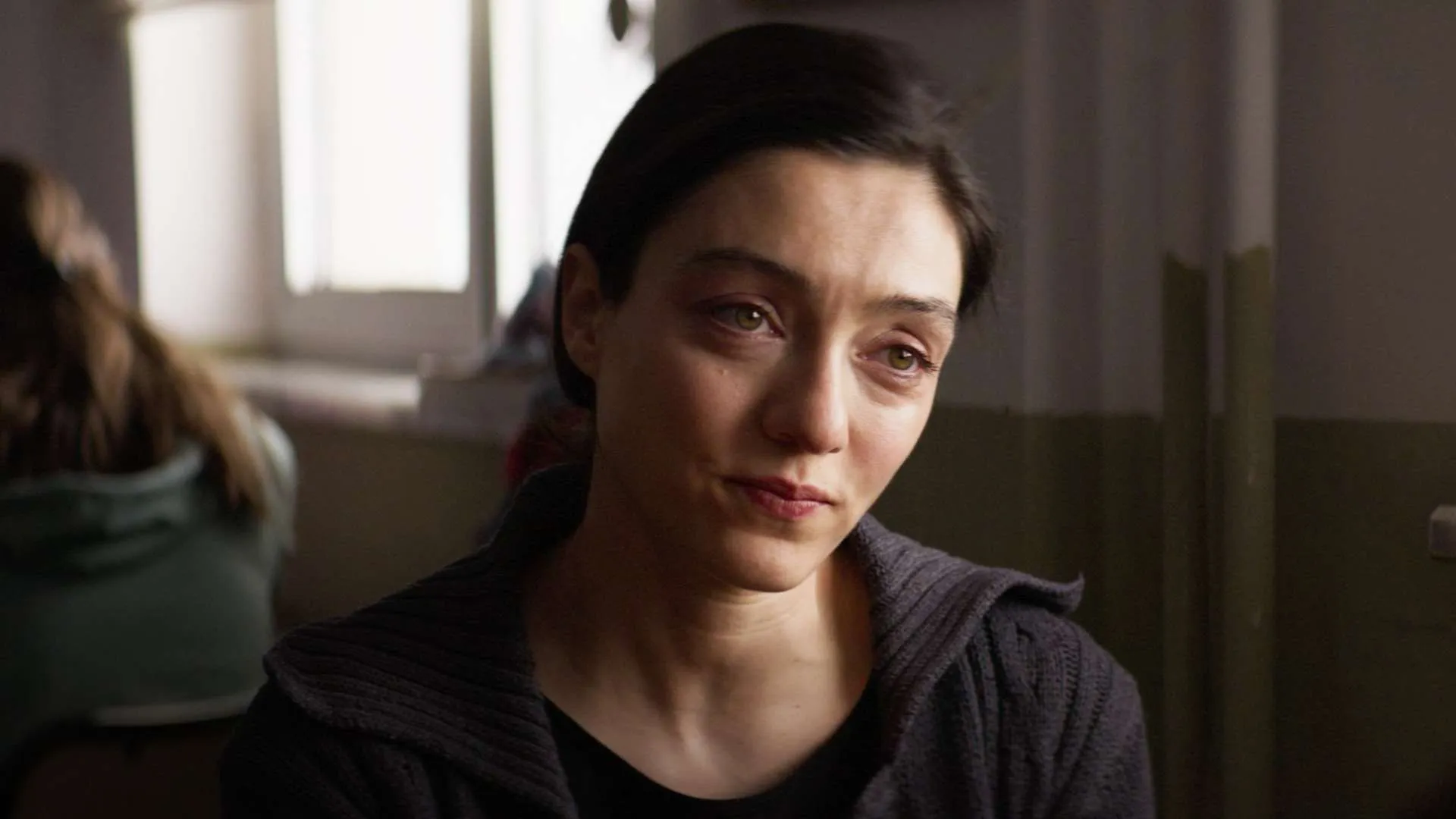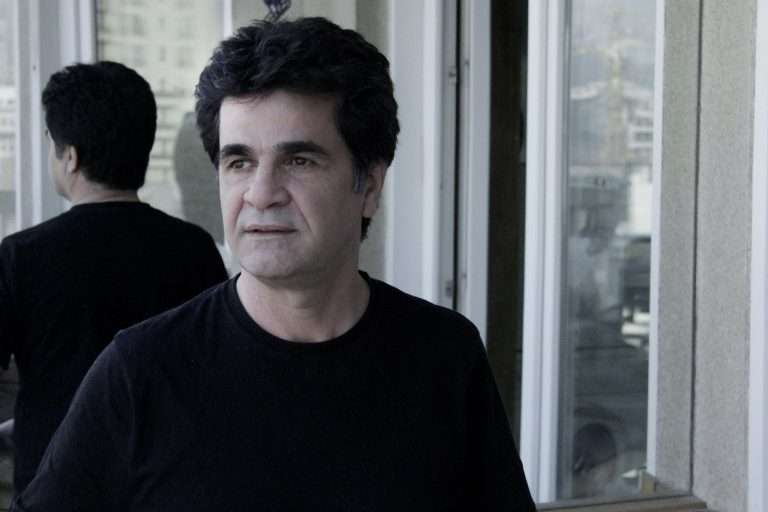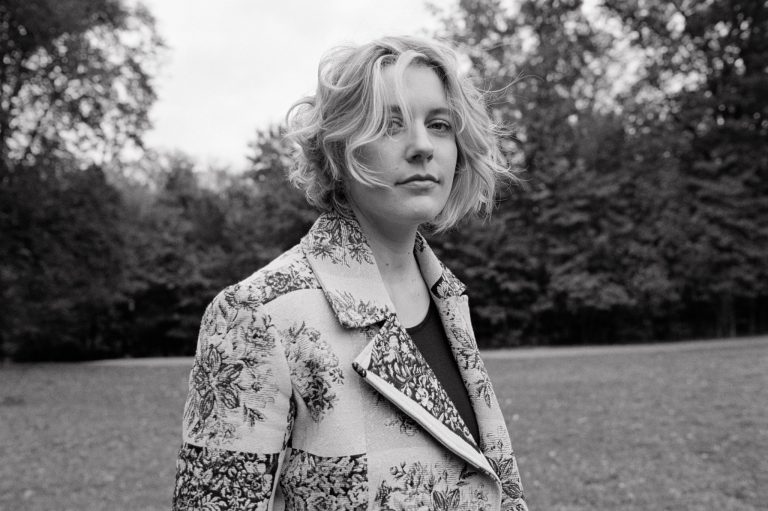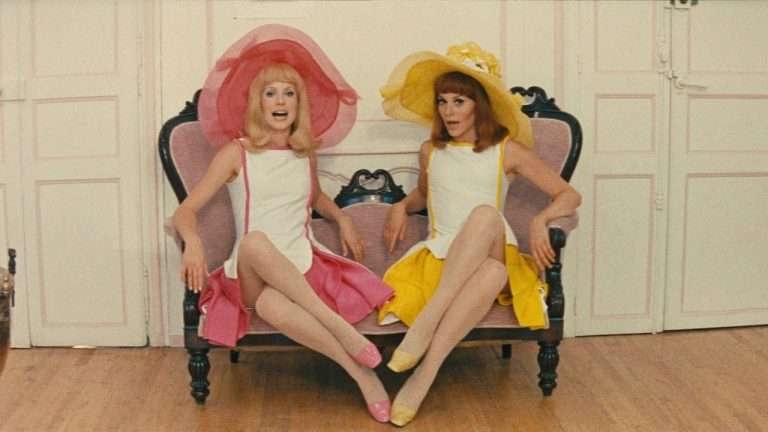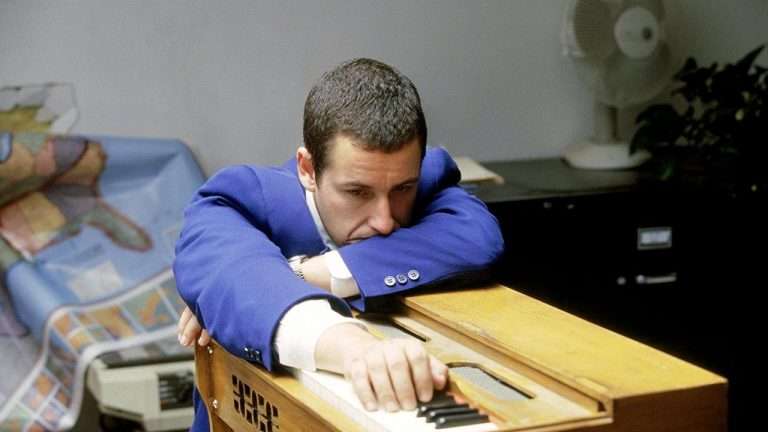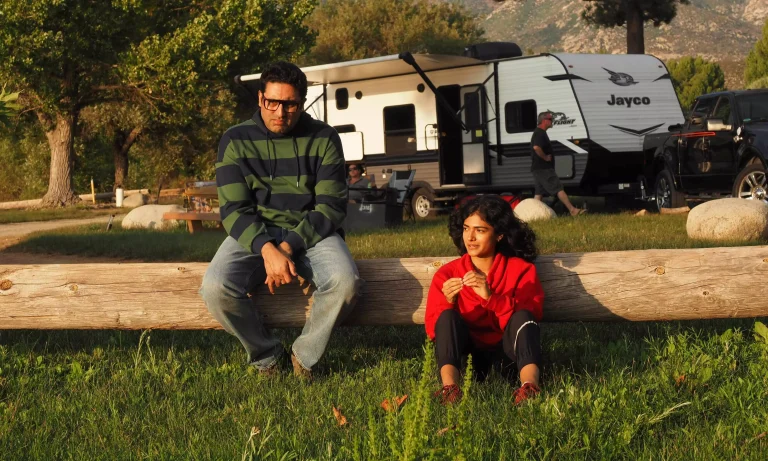An underlooked titan of world cinema, the films of Nuri Bilge Ceylan put you through the wringer. And you emerge from it quite tired, quite shaken but a bit wiser, a bit more compassionate for humanity. You earn a more profound empathy for the human condition and a richer sensitivity for life’s compelling dilemmas.
Ceylan’s cinema reframes perspective with shocking honesty. Perhaps the most impactful aspect of his films is the faint realization that sets in after they’re done that you can take a beating from the mysteries of life and feel like you’ve learned nothing at all but to be more accepting and forgiving of human beings and their humanity because that was the lesson all along.
The literary quality of his work gleams vibrantly (it’s worth mentioning a few of his films were inspired and adapted from the works of Anton Chekov). Add to the equation: a languid pacing, stunning visuals orchestrated with an emphasis on atmosphere, and simplistic yet thought-provoking storylines, and the spirit of Tarkovsky thrives. Each of his eight features explores the far-reaching corners of human existentialism, morality, family, loneliness, disconnect, monotony, and death.
Notorious for his long takes, immersive sound design, and Tarkovskian style of filmmaking, Ceylan occupies a throne in the pantheon of slow cinema with the likes of Lav Diaz and Bela Tarr. Whether it be a failing marriage in “Climates” or a brooding bunch of individuals searching for a dead body in “Once Upon A Time In Anatolia,” there’s an underlying rusticity in his work, making his exploration of the human condition poetic and composed.
His eye wanders to uncovering an existential sickness plaguing contemporary life, of dissecting an ennui self-destructive and indecipherable. Ceylan crafts genuine paintings, achingly serene works of art that entrap you in its trance the more its beauty dawns from its unconventional positions. Space plays a significant role in his films, indicating the physical and emotional isolation between the characters, most visibly in “Uzak” and “Climates.”
Born in Istanbul in 1959, Nuri Bilge Ceylan grew up in his father’s hometown of Yenice, nestled in the Aegean province of Çanakkale. With negatives he bought from Russia and some expired stock, Ceylan made his venture into filmmaking in his thirties with his short film Cocoon in 1993—a wordless meditation on age, nature, memory, and the elements starring his parents. Like Chekov and Ibsen, two mighty (and Russian) playwrights of the literary world, Ceylan’s cinema excavates the beauty in dread, the melancholy in the bittersweet.
There’s despair in the calmest of moments, doubt in peace, an imminent ruin always looming over what resembles a conclusion. The main characters are the people of our lives — the angry youth damned to try to live and not survive in a world unjust and unforgiving, tired mothers and worn-out fathers, couples draping their woe in thinly veiled domestic bliss, the desperate, the confused, narcissists, manipulators and artists.
Above all, it is the artists their anguish, hatred, struggles and pains, and survival to make sense of the ideological warfare in their lives and with their culture, friends, family, and country. The settings of his film are desolate lands and eerie steppes, quaint hamlets, and cramped apartments — the disquiet of nature always taking center stage with characters being the subjects of their environment. Nuri Bilge Ceylan is interested in the inner worlds of things, the murky, jaded souls of the everyman and everywoman. His excavations illuminate the elusive nature of life, no matter how dreary or mystifying the answers might be. So here is a comprehensive ranking of the Turkish auteur’s cinema.
Related to Every Nuri Bilge Ceylan Film Ranked: 10 Greatest Daniel-Day Lewis Films, According To Letterboxd
9. Kasaba (1997)
“Kasaba” is a humble and confident piece of neorealist cinema, a debut film in every sense of the word. The first of his aptly named ‘Provincial Trilogy,’ Ceylan sees himself playing with the ideas and themes that would propagate and crystallize in the later years of his career. “Kasaba” is the spiritual sequel of his short film “Cocoon,” exploring rural life with a slightly grander cinematic scope — a slice-of-life drama centered on a small family in the Turkish countryside (also starring his parents).
The narrative is fluid and sensory, serving as an excellent attestation of Ceylan’s photography but injected with an unmistakable seriousness. The plot is elementary; we follow the adventures of two siblings studying in school and their cousin Saffet, an unemployed, disillusioned young man. Their narratives converge at night during dinner, when they gather around a bonfire with their parents and grandparents, who trade stories and discuss their deepest fears.
Ambitious and quietly unsettling, “Kasaba” is heavy with the signature dread and foreboding characteristic of Ceylan’s work. The effect here is pronounced—an outcome of presenting it at its most rudimentary, helped immensely by a singular vision and unsupported by much technical flashiness. It’s unabashedly personal. Apart from starring his friends and family and adapted from a story written by his sister Emine, Kasaba reflects the fears and aspirations of a people fading, of a life receding into insignificance and emptiness, clearly influenced by Ceylan’s childhood living in his father’s hometown. The dilemma of living in a rural center is a precarious one; the non-negotiable is loss.
To leave for a new life is to abandon one, and so is to stay and let it slip from one’s hands. Characters are conflicted, unsure of their place in this burdening world; the young are at the cusp of losing their innocence, the adults struggle to make sense of the how and why of living, and the old are subjected to a fate of solitude and obscurity, with death waiting to consume them all. Kasaba is, at its barest, a portrait of loss.
8. Clouds of May (1999)
Ceylan’s sophomore feature is brilliant for many things. Firstly, it’s an awe-inspiring leap in style and technical expertise. He makes the jump to color, and it’s beautiful (the sunflower field scene is burnt in my memory). Secondly, it’s a beautiful story. Ceylan has poured his heart into creating a poignant portrait of a father-son relationship. Clouds of May employs a meta-narrative to explore both his own personality and his own family. It’s gorgeously moving and acted with grace and style.
The film starts off with Muzaffer, a filmmaker, returning to his hometown to gather inspiration for his next movie. He stays with his mother, Fatma, and father, Emin, played by Ceylan’s parents. Emin is a kind, older man who’s afraid the land survey will take his land away. He’s dreading the day they come for his land. Muzaffer goes around his childhood town and meets Ali, a young schoolboy, and his cousin Saffet, who’s promised work in Muzaffer’s next film.
The core of the film is Emin Ceylan playing himself. It’s an endearing performance packed with emotional weightage and subtle nuances. “Clouds of May” are imbibed with a style of acting naturalistic and free, such that direction or any constraint would undercut the flow of the movement. The camera assumes the role of a voyeur and lets the line between character and reality blur. The scenes with Emin are endlessly amusing.
It feels as though he’s a genuine human being discussing his real problems. The camera assumes an objective position and lets events unfold. There is so much brilliance in this film, from the innovative use of lighting to the cinema-verite style. The luminous vulnerability is what ties the film together. Also, do watch the behind-the-scenes footage; it’s absolutely wholesome.
Related to Every Nuri Bilge Ceylan Film Ranked: 10 Must-See Movies in May 2023 (Theatres)
7. Climates (2006)
There’s something about marital dramas that makes them compelling. It’s a tale of two people toiling to accept the change that comes with being with each other for a long time. Time changes perceptions, priorities, and expectations; how a couple adjusts themselves to the other’s new perception through compromise and sacrifice is at the core of a juicy marital drama. Think “Kramer Vs. Kramer,” “Marriage Story,” and “Who’s Afraid of Virginia Woolf” — these films are loud, dynamic, and held on the shoulders of emotionally charged performances.
There are fights, confrontations, and discussions; their justifications make sense, and no clear hero or villain exists. These are stories of people coming to terms with themselves. Sometimes love changes, and it hurts, and it’s their choice to accept it or not. “Climates” deviate from this by a clear margin. What starts as an estranged husband and his distant wife solving their marital problems becomes a profound meditation on the misgivings of human communication and our affinity towards loneliness.
Ceylan stars with his wife, Ebru Ceylan, to play the unhappy couple. Isa is a college professor who’s writing a thesis that never seems to finish. Tagging along with him is Bahar, his young and beautiful wife. The couple barely speaks. In fact, “Climates “employs silence as the ultimate narrative tool. In a film about miscommunication and repressed sentiments, silence is undoubtedly superior, as it harbors no bias, edges, or presumptions. Isa and Bahar hate each other; we don’t know why, but this is not the film’s area of interest. It is in their attempts to reconcile their differences, solutions, and compromises. This doesn’t fall according to plan.
“Climates” is brooding, dreary, and lurks at a patient pace. It is unlike the conventional marriage drama. The anger is subdued; the violence is direct and wordless. Disdain emanates from their searing words, occasional and sparse. The cinematography emphasizes their disconnect with the unique mise-en-scene. “Climates” might suffer from a severe tonal problem, but it’s entirely subjective. In a filmography as grand as Ceylan’s, the sixth position is quite humble.
6. The Wild Pear Tree (2018)
In many ways, “The Wild Pear Tree” feels like a remake of Clouds of May — of an artist coming back home and absorbing the changes of a fast-changing world, one which waits for no one, and the strongest are those who are patient and suffer the most. But a pessimistic, absurd undertone sets them apart. There is a pain that comes from accepting the change; it is perhaps the most necessary of all pains.
In fact, “The Wild Pear Tree” is a stirring inquiry into the ever-changing world, the changing perspectives on art, religion, family, patriotism, love and pain, and life itself. We follow the adventures of Sinan, a recent college graduate who returns to his hometown of Çan. He’s an aspiring writer and asks around for money to publish his “quirky auto-fiction meta-novel” because his gambling-addicted father, Idris, has reduced their wealth to nothing but debt. The film then follows the idealistic, brash young writer having conversations and debates with the locals, probing into the nature of the world he’s living in.
The narrative is stitched together with conversations and interactions, from which emerges its drama. Imams, past lovers, established writers, and old friends act as gateways to Sinan’s philosophies. The characters engage in furious bouts of philosophical tennis, defending ideologies and convictions when the ball’s in their court. From theology to capitalism to the role and purpose of the artist, the depth and length of their conversations make it feel like this was Ceylan’s attempt to make a stage play but failed and opted for a cinematic format.
The screenplay is excellent, but some scenes feel like the director’s mouthpiece and naturally become winding and monotonous. The cinematography was good for the most part; there are a few scenes shot using a smaller digital camera which was jarring. Nevertheless, “The Wild Pear Tree” is an important film and will be highly relatable to some folk (especially disillusioned college graduates, including me).
Related to Every Nuri Bilge Ceylan Film Ranked: 15 Psychological Crime Thrillers with Shocking Plot Twists
5. Three Monkeys (2008)
This astonishing neo-noir kickstarted Ceylan’s incisive examination of morality and its elusive subjectiveness. Winner of the Best Director at the Cannes Film Festival in 2007, Three Monkeys is replete with Ceylan’s signature trademarks — a meandering pace that tests the weak and rewards the patient, oppressive spaces and claustrophobic frames, and a handful of uniquely written characters.
But Ceylan infuses a potent strain of neo-noir conventions to elevate an elementary plot into a pulpy cautionary tale. The humanity whose sadness and compassion he’s presented in his prior films is nowhere to be found here. Instead, Three Monkeys is a film about human beings doing the right things for the right causes — there is no moral obligation for it to be good. In fact, Ceylan proposes a compelling question: what is evil, and what does it take, or what does it require, to be truly evil?
We hear the opening scene and imagine it first—a car screeches in the dark. Servet steps out and assesses the tragedy; this will affect his election campaign slightly. He calls his driver, Eyüp and convinces him to take the blame for the hit-and-run. In return, Servet will continue to pay his salary to his family and a lump sum after he’s released. His family lives in the slums, and money matters plague their lives. Hacer, Eyüp’s wife, starts an affair with Servet, and the family begins imploding, forming the narrative.
Sound design is an inextricable element in Ceylan’s cinema; his films’ soundscapes not only set the tone but guide the story. It transcends a simple scene to include more than what it shows us. It’s incredibly subtle, and the times when it’s highlighted are powerful. The drag of a cigarette feels ominous; the heat of a brutal Turkish summer becomes apparent from water searing and soft panting. The cinematography is gorgeous. The color palette shifts fluidly between yellows and grays. Ceylan’s most accessible film is a technical marvel and a powerful tale of the innate evil that resides in us all — dormant, silent, but ever-present.
4. About Dry Grasses (2023)
The master of malaise is back after a five-year hiatus with another piercing character study. “About Dry Grasses” sticks out like a sore thumb in Ceylan’s filmography—it’s an absolutely propulsive drama set at a pace quite unlike his previous ventures. The meandering and thoughtful tone is dialed down, the camera is imbibed with a chilling dynamism, and the characters are more complex than ever.
Ceylan gets his hands dirty digging through the muddier parts of our ego to reach the hardened truths of self-preservation and narcissism. There’s a rigid sense of narrative in “About Dry Grasses”—every moral and ethical quandary is expertly crafted, injected with a healthy dose of moral greyness, and placed perfectly to progress the plot with direction.
A scandal at a school sends Samet, a self-important and egotistical teacher, off the rails. He’s a typical Ceylan specimen: thoroughly unlikeable, immensely smart, and extremely engaging to watch stumble and fall. Such a character comes with a set of assumptions and convictions clashing with a world that doesn’t accept them, standing like a null hypothesis waiting to be rejected. And it’s this process of rejection, seen as an inner, abstract turmoil, that makes Ceylan’s narrative bloom.
Take the major plot point of Thomas Vinterberg’s “The Hunt” and elevate it by way of Tarkovsky, which sounds disgustingly reductive, albeit it’s enough to give away not too much of the film. But unlike Vinterberg’s searing socio-political commentary, Ceylan is interested in the subtly devastating ripples tragedy can create in one’s perception of the world.
Rather than presenting the exterior results of the tragedy, Ceylan is interested in the implications it causes to our character’s interior lives. A screen of moral ambiguity creates compelling dilemmas that enliven the film. Ceylan is more liberal with his editing here; the first hour flies by and settles gracefully into a philosophical dissection of human communication, bureaucracy, secrecy, deceit, desire, community, and self-importance. Perhaps it’s the recency bias, but “About Dry Grasses” is simply monumental. Also, the child actors were excellent.
3. Winter Sleep (2014)
“Winter Sleep” is simply tremendous; I could end the review here, and it’d be plenty. Clocking in at 3 hours, Ceylan’s longest to date is a character study of epic proportions, astonishingly focused and technically breathtaking. It’s a sumptuous feast to the eyes, providing ample intellectual brain food and compelling drama. Ceylan flays the many murky facets of our protagonist, Aydin, testing his undying convictions and disproving his warped ideologies with incredible ease.
“Winter Sleep” is Ceylan’s most character-driven of all his works; the intricacy of the layers each character possesses is a testament to his brilliant writing. Their personalities unfold elegantly through their spit-fire conversations, mellow discussions, hot debates, and quietly powerful confrontations.
A washed-out thespian, Aydin spends his retirement in his hotel in the Cappadocia mountains. He is accompanied by his divorced sister, Necla, and his young, attractive, but estranged wife, Nihal. Aydin is an almost cartoonish depiction of an intellectual writing polemics and pieces for the village paper. He is also a well-known landlord, from which the narrative organically unfolds.
Haluk Bilginer as Aydin and Melisa Sözen as Nihal offer the decade’s best performances. I’m willing to die on that hill. Their chemistry is in tune with their characters, feeding off the toxic fumes of their estrangement, playing so brilliantly off their secret disdain and open disconnect from each other. Emotions and sensitivity drive Nihal. And pitted against Aydin’s calm cynicism, it promises some stellar scenes.
“My kingdom may be small, but at least I am the king here,” states Aydin, a hypothesis encompassing his thinking, which sums up the limits of his self-righteousness and intellectual superiority. The narrative seeks to reject this hypothesis, each character bringing down Aydin’s presumptions of the world. Some of the dialogue is razor-sharp and hits so close to home that you wonder if it’s directed at you. It is a breeze for the Ceylan veteran; reserve this for later once you’re comfortable with his style.
Related to Every Nuri Bilge Ceylan Film Ranked: From Citadel to House of the Dragon: The 10 Most Expensive TV Shows of All Time
2. Uzak (2002)
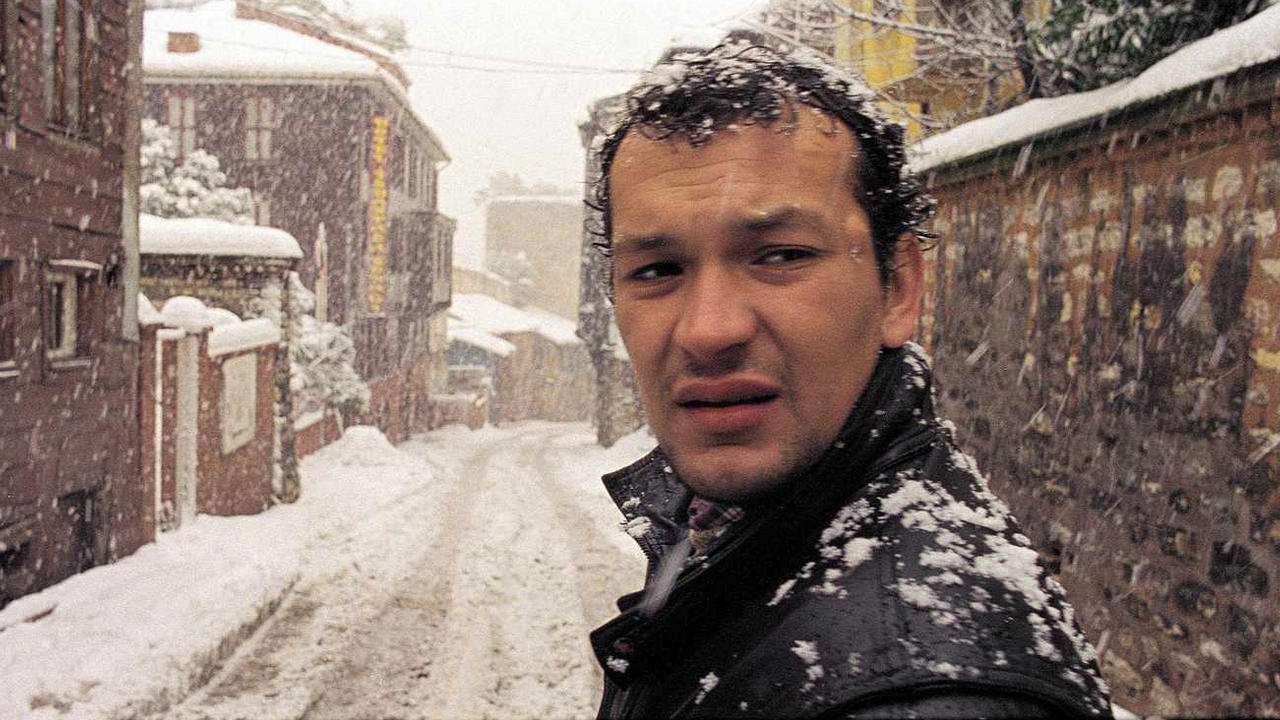
The third and final installment of the unofficial ‘Provincial Trilogy‘ strays away from the neo-realist heaviness of Kasaba and the metaphysical playfulness of “Clouds of May.” The narrative is tight, the characters resemble people of our lives, and the atmosphere is heavy with an uncertain paranoia. “Uzak” is Ceylan at his most uncompromising, creating a chilling, terrifying portrait of urban malaise. The narrative follows Mahmut, an intellectual photographer, and Yusuf, his village cousin, and their quest to find a way out of their loneliness.
Ceylan’s presentation of the subject matter is mesmerizing; the slow-burn nature of his direction compels us to fully immerse ourselves in the unbreakable solitude of the protagonists. The alienation is unbearable, human intimacy becomes a mystic spell, and weariness defines our character’s faces. The punishing winter of Istanbul and the claustrophobia of Mahmut’s apartment (Ceylan’s own abode) drape “Uzak” in an uncomfortable blanket of melancholy. But it soon becomes suffocating, and the terror of their seemingly banal existence comes to the fray quite unexpectedly, silently, and hits you when you least expect it.
Mahmut and Yusuf’s disillusionment is painfully familiar; humans grapple with an incurable inner turmoil of existing in a place spent of their potential, of a world glacial and indifferent to their subsequent attempts to cure their abstract sickness. It’s endearing to see these distant men bond and build companionship. However, it takes on a pitiful quality to see their efforts amount to nothing. Mahmut and Yusuf are afraid, frozen to take the next step, afraid to see beyond the wintery fog that institutionalized them in their comfortable solitudes.
Dialogue is sparse, their performances silent but teeming with concealed sentiments. The failure of human communication is embarrassing in matters of the heart—are such the only ones that matter? It ends on a note of gloom, with each character realizing their mistakes are too great and too toiling to solve. Is their acceptance a defeat? Or is it the ultimate enlightenment? “Uzak” is a mirror to our own despair in gaining meaning from an unforgiving reality. And the answers, or the lack thereof, are spine-chilling to accept.
1. Once Upon A Time in Anatolia (2011)
Ceylan’s sixth feature is a monumental philosophical inquiry that doesn’t collapse under the weight of its themes. A subversive crime is procedural and directed with unbelievable precision and style; Ceylan’s best work is entrancing, a blooming synthesis of the themes he so maturely treats in his filmography.
A powerful exploration into humanity’s failures, the mysteries of death, love, life, suffering, and despair, of broken humans and their broken next of kin, Ceylan crafts a depressing reality to be inherited by those to come. He employs an innovative and twisty narrative to get to the rind of it, devoid of didacticism and shakiness in conviction. The ‘Russian classic’ aesthetic gleams at its brightest, courtesy of being adapted from yet another Chekov short story titled ‘The Examining Magistrate.’
There’s a corpse, and there’s a search party for said corpse; our characters embarking on a journey to dig up this corpse form the narratively volatile plot. Murderers Kenan and his mentally challenged brother seemed to have forgotten where they’d buried their victim, so the search goes late into the night. The narrative concerns itself with the interactions of the prosecutor, the doctor, the commissioner, and the murderer brothers. The technical expertise of Ceylan’s cinema has always been distinctive.
But in “Once Upon a Time in Anatolia,” it becomes unabashedly obvious — Ceylan is operating at the height of his ability and to the point of utter awe. Scenes are lit up using unconventional sources: the car headlight piercing the Anatolian night’s impenetrable darkness, the soft, warm glow of gas lanterns, naked fluorescent light bulbs, and dying fireplaces.
Light is almost earned in scenes; its presence feels hopeful in the suffocating darkness. Ceylan plays with time and silence like it’s clay. He uses it to elaborately deconstruct his characters, dissect the various heavy themes juggling around with philosophical precision, and get to the truth of things without feeling pandering or rushed.
“Once Upon a Time in Anatolia” encapsulates a serious human endeavor: the search for truth. All of the characters are plagued by secret pains, hidden truths, lies, deceit, and doubts. Yet they never get anywhere; they receive no conclusions or attain closure. The audience is left interpreting the ambiguous climax. We are confused by our actions, the games we play, and the performances we put up for others and ourselves.
Life is a terrifying ocean whose depths are unfathomable. And to gain meaning by asking questions and embarking on conquests is to throw a line in its waters and be pulled into its unforgivable depths. Yet, to be human is to question life. We may never get answers. But our attempts are what matter; it is sometimes the entire truth in and of itself. One of the greatest films of the past decade. Hypnotizing, affecting, and impactful, a work of brazen honesty and subtle destruction, like how all art strives to be.






